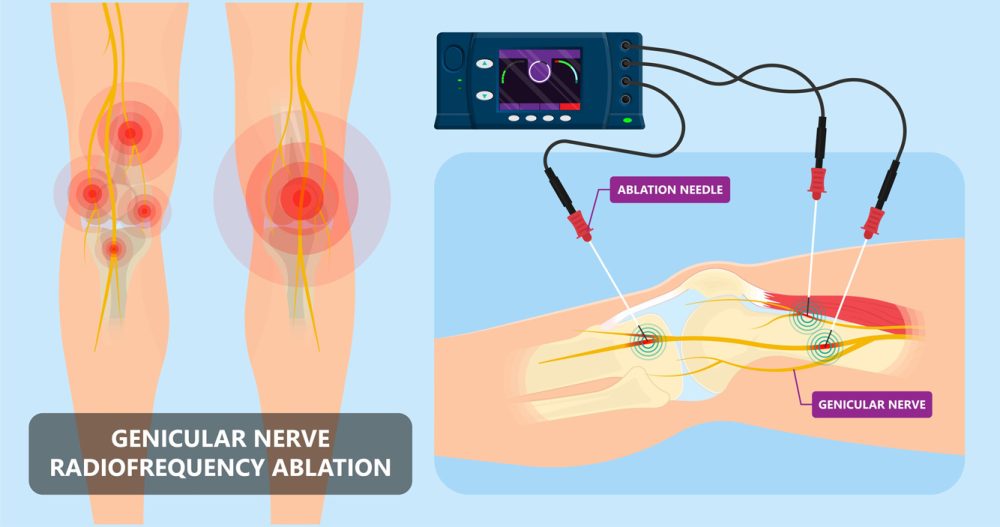Advertisment
Nerve blocks show efficacy in knee osteoarthritis

Researchers report that patients with knee osteoarthritis have achieved significant short-term pain relief with ultrasound-guided genicular nerve blocks (GNB), locally injected anesthetics that block nerves around the knee joint.
The findings were published on Nov. 12, 2022 in Arthritis & Rheumatology.
“This study demonstrates that genicular nerve block is an effective short-term therapy for pain management in people with knee osteoarthritis,” said author Ernst M. Shanahan, BMBS, MPH, PhD, of Flinders University, in Adelaide, Australia. “We think it may be a useful treatment option for this group of people, in particular those waiting for, or wishing to defer surgery.”
The investigators conducted a 12-week, placebo-controlled randomized trial of genicular nerve blocks.
Within 2 weeks of randomization, subjects randomized to active treatment had received 3 injections of 5.7 mg celestone chronodose (1 ml) and 0.5% bupivacaine (3 ml) to the inferomedial, superomedial, and superolateral genicular nerves. Subjects randomized to placebo had received injections of normal saline.
At baseline and at weeks 2, 4, 8, and 12, subjects recorded pain and disability on a 100-mm visual analog scale (VAS, the primary outcome measure).
The investigators randomized 64 subjects into the two cohorts, and 5 failed to complete the study. “Because all of these patients were lost to follow-up early in the study and before the first measurement time point after baseline (at 2 weeks), their data were excluded from the analysis,” the authors noted
A total of 59 subjects (36 female, 23 male) completed the study, with 31 in the actively treated cohort and 28 in the placebo cohort.
Mean age was 68.2 years.
Subjects in the actively treated cohort reported improvements in pain at 2, 4, 8, and 12 weeks, with a diminishing effect over time.
VAS scores at baseline and at weeks 2, 4, 8, and 12 in the active group versus the placebo group were 6.2 versus 5.3 (P = 0.294), 2.7 versus 4.7 (P < 0.001), 3.2 versus 5.1 (P < 0.001), 3.9 versus 4.9 (P < 0.001), and 4.6 versus 5.1 (P = 0.055), respectively.
The authors reported, “Patient-reported measures of satisfaction with the outcome were high in the active group compared with the placebo group, although again with a clear diminution of the effect over time, with 50% of the active group reporting improvement at 8 weeks but 30% reporting improvement at 12 weeks.”
They concluded, “US[ultrasound]-guided GNB has shown promise as a treatment in the management of symptomatic knee OA; however, its efficacy until now has not been truly established. In our patients who received GNB, this intervention proved to be safe, effective, and highly acceptable. Many of the patients requested repeat GNBs at the end of the study. Based on our findings, we believe it is reasonable to offer this intervention.”





